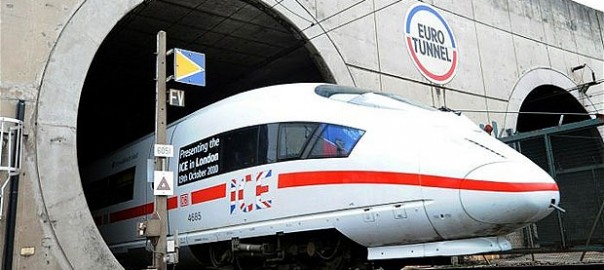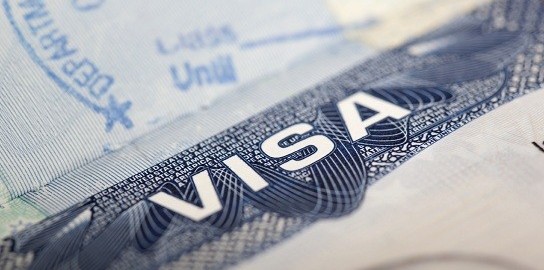Foreigners who take up residence in Switzerland for the first time or after an absence of more than ten years may opt for a special tax regime provided that they will not carry out any gainful activity in the country. In doing so, they will benefit from the application of a special method for the assessment of their income and wealth, which is an expenditure–based taxation. This special regime is more generally known as “lump-sum taxation”. It is applied at Federal level and in some cantons, more particularly in the West part (French speaking part) of Switzerland. Opting for lump-sum taxation regime will generally be a decisive criterion for the grant of a residence permit to applicants from non EU countries who are under the age of 55 and have no specific personal relation to Switzerland.
Lump-sum taxation has raised a rather intensive controversy in Switzerland during the year 2014 and even earlier. Until very recently the system was under the attack of certain political parties and organizations that launched popular initiatives (typical democratic rights provided by Swiss constitution), in several cantons and at Federal level, calling for lump-sum taxation to be abolished. The canton of Zürich, for instance, had to abolish lump-sum taxation in 2009 as a result of a cantonal popular initiative that collected a majority of votes against this tax regime. The reasoning of the opponents to lump-sum taxation is that the system would not be consistent with the constitutional guarantee of equal treatment. In other words, tax payers benefitting from lump-sum taxation – who cannot be Swiss citizens – are considered to be taxed on a more favourable way than other tax payers – mainly Swiss citizens – who are taxed under the ordinary regime.
This is not the place to enter into the controversy even though there are many reasons to consider that foreigners taxed on a lump-sum basis in Switzerland are not actually in the same situation as Swiss nationals and other foreigners who are taxed under the ordinary regime. Therefore different situations allow different treatments, in particular when it relates to taxation. Furthermore, economic considerations surrounding lump-sum taxation show that this system brings a lot of benefits to the local economy which recovers most of the expenses, quite actual and significant, incurred by lump-sum taxpayers for their living at their place of residence. This explains why the business community strongly opposed the abolition of lump-sum taxation.
Finally, on November 30th, 2014, the initiatives to abolish lump-sum taxation at Federal level and in the canton of Geneva were strongly rejected by the population at both levels. So far there are no other cantonal initiatives against lump-sum taxation pending in other cantons.
It is now very clear that lump-sum taxation will remain in force in Switzerland, at Federal level and in some cantons, more particularly in the French speaking part of the country (for instance in the cantons of Geneva, Vaud and Valais). However, following the abolition of this special regime in some cantons of the German speaking part of Switzerland, Confederation had already taken the lead in tightening the conditions for the application of lump-sum taxation at Federal and Cantonal levels. In this respect amendments, effective as at January 1, 2016, have been made to the Federal Direct Taxation Act (DFTA) and to the Federal Act on the Harmonization of Direct Taxation at Cantonal and Communal levels (DTHA).
For the sake of clarification, it is worthwhile noting that Swiss tax system provides for tax jurisdiction at three levels, Federal, Cantonal and Communal. Taxation is however made by Cantonal authorities who act for themselves and, by delegation, for the Confederation and the home municipality of the tax payer. Confederation levies tax on income only, while cantons and municipalities levy tax on income and wealth.
Principles applicable to lump-sum taxation at Federal level (art. 14 DFTA) and at Cantonal and Communal levels (art. 6 DTHA)
- Expenditure-based taxation (lump-sum taxation) replaces ordinary taxes on income and wealth.
- The system is available only for foreigners who set up domicile in Switzerland for the first time or after an absence of ten years. Swiss nationals cannot benefit from this tax regime.
- Spouses living in the same household must both meet the requirement for lump-sum taxation.
- The portion of expenditure–based taxation replacing the ordinary income tax is calculated on the basis of the annual expenditure / living costs of the tax payer, in Switzerland or abroad, for himself and for his family members or other people dependant from him and living with him. Taxes are levied on the highest of the following amounts:
- The minimum amount set by the law, which may not be less than CHF 400’000.- for Federal direct taxation. (Cantons have to set in their legislation, at their discretion, the amount of the minimum assessment basis);
- Seven times the annual rent or annual deemed rental value of the home of the main tax payer;
- For other tax payers living for example in a hotel or in a pension: three times the price of the annual pension for food and housing at the place of residence of the tax payer.
- Tax is levied at ordinary tax rate.
- Cantons are free to determine how cantonal wealth tax is covered by lump-sum taxation.
- The amount of taxes due on the basis of the lump-sum assessment must be at least equal to the total of income and wealth taxes that would be charged to the tax payer if he would be taxed on following items, under the ordinary regime:
- Real estates in Switzerland and the income generated by such assets;
- Movable assets located in Switzerland and the income generated by such assets;
- Financial assets invested in Switzerland, including debts secured by real estate and the income generated by such assets;
- Copyright, patents and similar rights exploited in Switzerland and the income generated by such rights;
- Retirement pensions, annuities and other pensions from Swiss sources;
- Foreign income for which the tax payer requires partial or full exemption of foreign taxes based on any double taxation treaty entered into by Switzerland with the country where taxes are levied.
- If the income from a foreign state is exempted provided that Switzerland levies taxes on such income, applying the rate for global income, Swiss taxes are calculated not only on the basis of the income mentioned above but on the basis of all items of income from the state at source or attributed to Switzerland based on the relevant double taxation treaty.
Specific conditions at Cantonal level (limited to the Cantons of Geneva, Vaud and Valais):
Minimum annual assessment basis, i.e. lump-sum amount, set forth by law:
- Geneva: CHF 300’000.-
- Vaud: CHF 300’000.-
- Valais: CHF 220’00.-
However, in practice lump-sum taxation is granted based on higher minimal amounts, as follows, by approximation:
- Geneva: CHF 350’000.-
- Vaud: CHF 350’000.-
- Valais: CHF 280’00.-
So far, the above cantons have not set forth any specific condition in order to assess wealth separately, in addition to tax assessment based on expenditures.
Comments
As explained above, renouncing to any gainful activity is a key condition in order to benefit from lump-sum taxation. Therefore, foreigners who become new Swiss taxpayers under this special regime are not allowed to take up any employment in Switzerland, should it be with a third person/entity or with a legal entity under their control, for instance as shareholder or beneficial owner of such entity. The same applies to any independent gainful activity. For the time being carrying out gainful activity outside Switzerland is still allowed. The conditions in this respect might become more tightened in the future, at least at Cantonal level. According to existing practice, lump-sum tax payers are still authorised to be a member of a Board of directors of a company in which they have interests (equity and/or loan), in the capacity as “observer” for the purpose of monitoring their investment. However they may neither participate to corporate decisions nor receive any remuneration for their position within the company. In any way one must remain careful in this respect. The practice, more particularly at Cantonal level, could develop new and stricter requirements.
Lump-sum taxation and residence permit
Any foreigner who decides to take up domicile in Switzerland with or without any gainful activity must obtain a residence permit.
Residence permit for gainful activity must be obtained from the first day of activity. Residence permit without any gainful activity is necessary after a continuous stay of 90 days in the country.
For European citizens, obtaining a residence permit with or without gainful activity is a simple and swift process based on the agreement between Switzerland and the European community supporting the free movement of persons.
For citizens from non EU countries, the process is less straightforward. Residence permit with gainful activity requires a labour market survey to verify that there is no one available on local market and in the EU countries to take up the position. Authorizations are reserved for people at executive level for positions that will help develop the local labour market. For residence permit without gainful activity, the applicant must be over 55 and justify good ties with Switzerland. If none of these two prerequisites are met, the applicant may still show that he will be of a significant interest to his home canton in terms of taxation.
In this context, lump-sum taxation is frequently combined with the application for residence permit without gainful activity. Indeed, for non EU applicants who are not 55 of age or older and who have no ties to Switzerland, opting for lump-sum taxation is generally the only route to the grant of a residence permit without gainful activity. One must however be aware that the lump-sum amount must be of some significance in order to create a tax interest for the canton. Currently, the minimum amount of the lump-sum taxation basis is in the order of CHF 800’000.- to CHF 1’000’000.- depending on the Canton of residence. One can note therefore that the minimum assessment amounts (CHF 400’000.- at federal level) or seven times the housing expenses as lump-sum amount might not be sufficient when applying for a residence permit.
For practical reasons, it is advised therefore to obtain first a lump-sum taxation agreement with relevant Cantonal tax administration in order to be able to apply then for a residence permit in front of the population office of the Canton of residence.
Conclusion
The recent confirmation of the lump-sum taxation system in Switzerland will quite certainly result in a renewed interest for foreigners who see the country as a possible place for immigration. In addition the political and economic stability in the country combined with a high quality of life will continue to make Switzerland a first choice for immigration.








